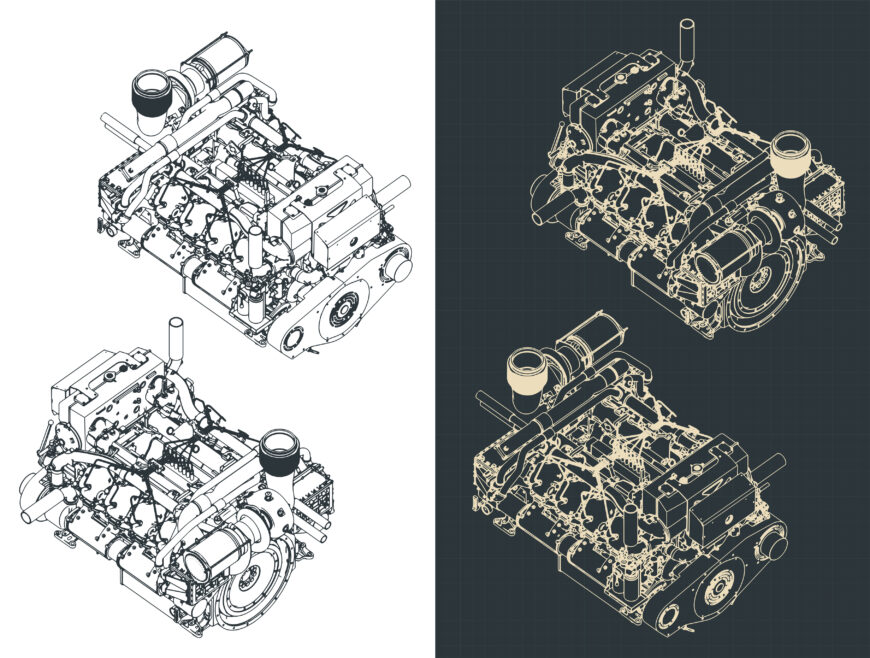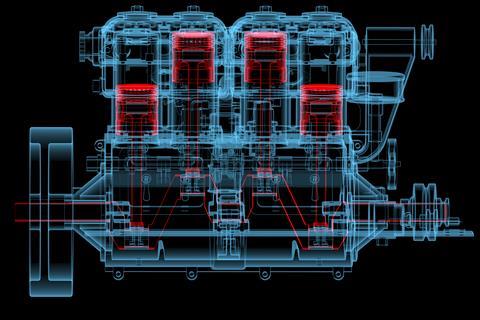Engines for Africa Available Currently! Check Out Our Relied On Car Components Store
Engines for Africa Available Currently! Check Out Our Relied On Car Components Store
Blog Article
The Quest for Ultimate Driving Power: Exploring the Peak of Engine Efficiency and Technological Developments in the Automotive Industry
In the world of vehicle design, the search of optimum driving power has actually been an unrelenting mission that has actually unravelled through the evolution of engine design and the combination of cutting-edge innovations. From the careful workmanship of burning engines to the rapid innovations in electric propulsion systems, the vehicle sector stands at the cusp of a new age defined by extraordinary efficiency capabilities. As researchers and engineers dig much deeper right into the worlds of computational fluid dynamics and discover innovative fuel technologies, the horizon of possibilities expands exponentially. Stay tuned as we unwind the detailed tapestry of technological advancements that are forming the future of automobile power and performance.
Evolution of Engine Style

Moreover, the assimilation of turbocharging and supercharging innovations has actually revolutionized engine style by enhancing power without dramatically raising engine size. These forced induction systems compress the consumption air, enabling more gas to be ignited, therefore creating greater power output from a smaller sized engine. This development has been specifically essential in enhancing the efficiency of smaller variation engines while maintaining gas effectiveness standards.

Performance-Enhancing Fuel Technologies
The application of advanced fuel modern technologies has dramatically contributed to boosting engine efficiency in modern-day vehicles. Biofuels, derived from sustainable resources like algae, sugarcane, or corn, deal lowered exhausts and boosted engine performance. Furthermore, fuel additives and cleaning agents are being formulated to tidy engine elements, optimize burning, and lower rubbing, thus enhancing overall vehicle performance.
Innovations in Electric Propulsion
Substantial strides in electric propulsion technology have actually reinvented the automotive sector, leading the way for a brand-new period of lasting and efficient transport. Electric vehicles (EVs) are getting popularity because of their environmental advantages and improvements in battery modern technology, making it possible for longer driving ranges and much shorter charging times. Suppliers are spending heavily in study and growth to boost the efficiency of electric propulsion systems, focusing on raising power output, enhancing power efficiency, and lowering overall weight.
One remarkable advancement in electric propulsion is the development of innovative electric motors that supply greater torque and power thickness, leading to enhanced velocity and total driving efficiency. Furthermore, regenerative stopping systems have actually been improved to catch and keep power throughout slowdown, further increasing the effectiveness of EVs.
Moreover, the integration of wise modern technologies, such as click site expert system and anticipating analytics, is maximizing the management of electrical propulsion systems, making certain optimum performance under various driving problems. These advancements in electrical propulsion are improving the vehicle landscape, driving the industry in the direction of a more sustainable and electrified future.
Effect of Computational Fluid Dynamics
With improvements in electrical propulsion pushing the limits of auto technology, the assimilation of Computational Liquid Dynamics is playing a pivotal function in optimizing wind resistant performance and improving total efficiency in automobile design. Computational Fluid Characteristics (CFD) entails using computer simulations to evaluate the flow of air around a vehicle, allowing designers to forecast just how layout modifications will certainly affect aerodynamics without the need for expensive physical prototypes. By properly modeling air movement patterns, CFD enables the refinement of lorry forms to lower drag, boost cooling, and improve security.
One secret advantage of utilizing CFD in vehicle style is the capacity to iterate swiftly, exploring countless design variations to recognize one of the most aerodynamically efficient options. This repetitive procedure causes vehicles that are not just sleeker and much more aesthetically appealing yet additionally much more eco friendly and fuel-efficient. CFD allows engineers to maximize airflow around elements such as radiators, engine bays, and wheel wells, see post adding to enhanced performance and total driving experience. Finally, the combination of Computational Fluid Characteristics represents a substantial progression in the quest for ultimate driving power and performance in the vehicle sector.
Future Trends in Engine Innovation
In the dynamic landscape of vehicle design, cutting-edge advancements are shaping the future trajectory of engine innovation. The future of engine style is noted by a solid focus on performance, sustainability, and efficiency. Suppliers are increasingly concentrating on creating engines that not only deliver high power outcomes but also prioritize ecological duty by reducing exhausts and improving gas effectiveness.
One famous trend in engine technology is the increase of electrification. Crossbreed and electrical powertrains are gaining traction as feasible alternatives to traditional burning engines. These technologies use the possibility for significant decreases in carbon emissions and boosted energy performance, straightening with international efforts to combat environment change.
Additionally, improvements in products science and production strategies are enabling the production of lighter and more long lasting engine elements. This change in the direction of light-weight products such as carbon fiber and light weight aluminum alloys adds to improved efficiency and gas economic climate.
Conclusion
In verdict, the search of ultimate driving power in the automobile field remains to drive improvements in engine style, gas modern technologies, electric propulsion, and computational fluid dynamics. The evolution of these innovations is forming the future of engine development, leading the means for extra effective and effective vehicles (engines for africa). As the sector remains to push the limits of what is possible, we can expect to see even a lot more cutting-edge advancements in the pursuit for peak efficiency
One of the key turning points in engine style advancement is the change from traditional carbureted engines to contemporary fuel-injected systems. By exactly metering the fuel distribution to each cyndrical tube, fuel-injected engines optimize burning, resulting in far better efficiency and lowered environmental effect.
In addition, the assimilation of turbocharging and supercharging technologies has actually changed engine style by increasing power without considerably boosting engine dimension (engines for africa).The implementation of sophisticated gas modern technologies has actually dramatically contributed to improving engine efficiency in modern-day cars. index Furthermore, fuel additives and detergents are being developed to clean engine components, optimize burning, and minimize friction, thus boosting total vehicle performance
Report this page